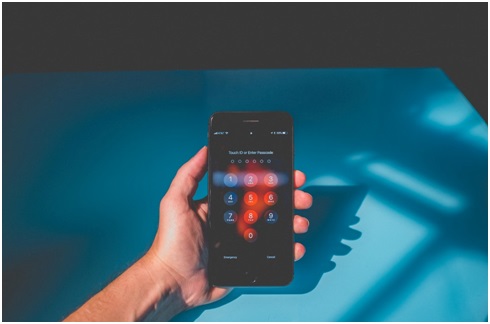
This article will find tips from security experts to help you survive in the digital world and not fall prey to intruders.
Digital Privacy – What Is It?

Now that much of our daily life revolves around the Internet, each of us’s privacy is at stake. Advertisers, sellers of goods and services, and governments worldwide are increasingly interested in tracking every movement on the Internet. Also, the world wide web is teeming with villains who want to take our money. Therefore, no matter who you are – social activists, political dissidents, or ordinary users, you must take care of data security and privacy.
Let’s start with a brief theory. What does digital privacy mean? The essence of digital privacy is that other people do not have access to your data. You control access to your information.
Why Should You Protect Your Privacy Online?

Each person has confidential information: bank card passwords, phone pin codes, and many others. Experts created modern technologies in such a way as to ensure maximum protection of user data. However, cyber fraudsters and hackers still manage to gain access to protected resources. How? Computers work using integrated circuits that create high-frequency changes in voltage and current levels. Voltage fluctuations pass through the wires and can be intercepted by other devices at any time. Transforming them into an understandable form is not difficult. Scammers can install interceptors in the computer, laptop, MacBook, etc. Therefore, you must protect your data in order not to become a victim of scammers.
What Most Worries Users About Online Privacy?
According to research by Statista, users are most worried about:
- onlinebanking – 71%;
- onlineshopping – 57%;
- posting personal photos and videos – 27%;
- socialmedia – 16%;
- viewingprohibitedcontent – 14%.
But whatever your goals, there are tons of ways you can effortlessly improve your internet security.
What Is The Best Way To Protect Digital Data?

The Internet has long ceased to be a fun place where people exchange messages, watch movies, play games – now it is a platform where scammers trade your personal data. If you’re not sure how to protect your privacy online, these tips can help protect your data from tracking.
Set up Social Networks

Social networks have become the most visited Internet resource today. From personal to business, our entire life revolves around social networking applications – it’s modern, practical, convenient. Yet, social media has its drawbacks. For example, by setting the access rights incorrectly, you can post addresses, personal photos, contacts of friends and relatives in public access. Each social media application has its privacy settings. The default settings are usually designed for basic protection and maximum comfort. Therefore, to increase confidentiality, it is better to recheck everything at once and adjust your tasks.
Use a VPN for Public Wi-Fi

Fast, free Wi-Fi is excellent. But public Wi-Fi systems usually have one drawback – they don’t encrypt data. This means that any member of the network has access to your traffic. Avoid transferring any confidential data (logins, passwords, credit card details) over unsecured public Wi-Fi. The only way to keep information about you private while you browse is to be someone else in a different place. For this, you need VPN apps. Using VPN no logs, you can remain anonymous and browse sites in other countries.
The most reliable and quality service is VeePN. The company gives access to servers in many countries. Both paid and free versions are provided. During the trial period, you can get a VPN free and test all its advantages. Download VeePN VPN for Firefox, Google, Opera, or other browsers and stay safe. Using the service is simple: register, download the program, connect to high-speed servers. The program also has the following positive aspects:
- accelerated information exchange process;
- encryption at one of the highest levels;
- complete privacy on the network;
- self-configuration based on your location.
Create Different Passwords for Accounts

Another way to improve your online privacy is to always use a separate password for each account. If the passwords are the same, this gives hackers easy access to all accounts. Another preventive measure is to log out of your account using a mobile gadget or someone else’s equipment. This will ensure that no one else logs in under your name.
Less Share Information

There are two ways to not share sensitive data with provider:
- Replace Google with DuckDuckGo. This is an alternative search engine that does not record or save user data.
- Use Tor Browser for Internet surfing. Tor Browser is an alternative to popular web browsers, which allows you to achieve a high level of privacy almost without compromising comfort.
Do Not Store Personal Information Online

It is imperative not to store sensitive data in public repositories because information can be easily obtained by someone else. For example, Google Docs is not a place to store a list of passwords and bank details, and Dropbox is a poor place to scan our passports. The only exception is to keep it in an encrypted archive.
Keep Your Software Up-to-Date

Keeping your computer and mobile gadgets up to date is an essential step towards keeping your Internet safe. Start by updating your operating system and turn on automatic updates if you haven’t already—Windows, OSX, iOS, Linux, and Android support this. Outdated software can leak valuable data and personal information.
Monitor Access Rights for Mobile Apps and Browser Extensions

Mobile apps and browser plugins ask us to access contacts or files and use a camera, microphone, and geolocation. The good news is that on PCs and most mobile gadgets, you can control access rights. The bad news is that some apps and plugins won’t work if you don’t permit them. Here we have to look and choose the things that we need.
Conclusion
In the 21st century, being safe and private when using the Internet is essential. You can be robbed online, just like in real life. By following the tips above, you can protect yourself from most problems and maintain your privacy. Using VPN web browsers, reliable search engines, complex passwords will make you a difficult prey for intruders.











